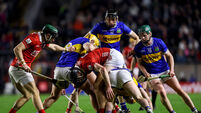Former Gurkhas and British soldiers reunite
More than 2,600 former British soldiers and Nepalese Gurkhas who served in the British army’s Second Gurkha Rifle regiment were reunited today in midwest Nepal to mark 10 years since the regiment was disbanded.
The unit was disbanded in 1994 before the British government returned Hong Kong, where most of them had been stationed, to China.














